Find Help
More Items From Ergsy search
-

Profound intellectual and multiple disabilities | NHS
Relevance: 100%
-

What is a learning disability?
Relevance: 52%
-

Are there grants specifically for individuals with disabilities?
Relevance: 45%
-
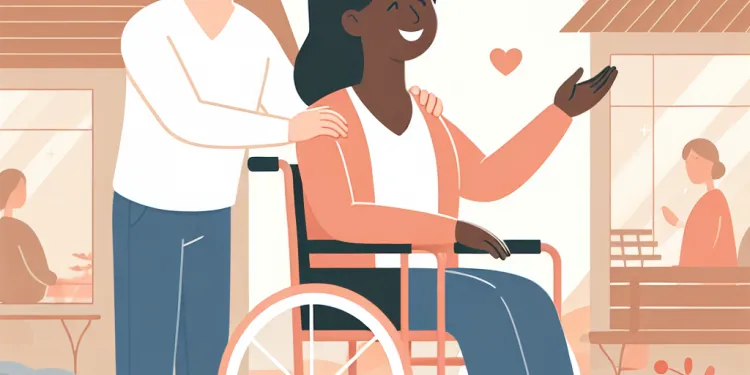
Helping someone with multiple diabilities
Relevance: 43%
-

Flu vaccinations for people with a learning disability
Relevance: 41%
-

Can children with disabilities access school meals?
Relevance: 41%
-

Debate Intensifies Over Welfare Reforms Impacting Disabled Citizens
Relevance: 39%
-

The NHS Long Term Plan for learning disability and autism
Relevance: 39%
-

Accessing cervical screening with the right support for people with a learning disability
Relevance: 36%
-

Use of reasonable adjustments to reduce health inequalities for people with a learning disability
Relevance: 35%
-
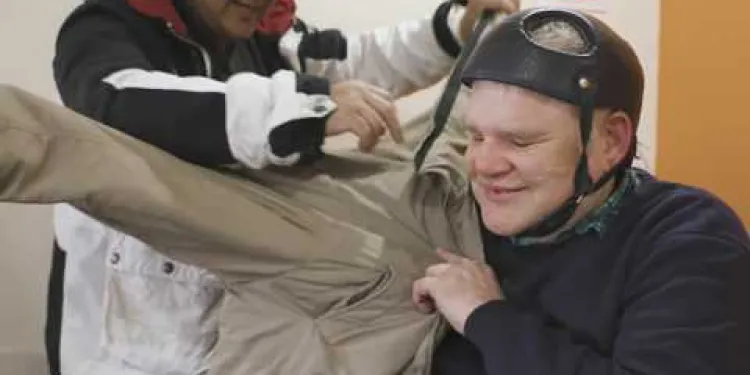
Transforming Care for people with Learning Disabilities and/ or Autism: Peter's Story
Relevance: 34%
-

What support is available for families of individuals with PIMD?
Relevance: 30%
-
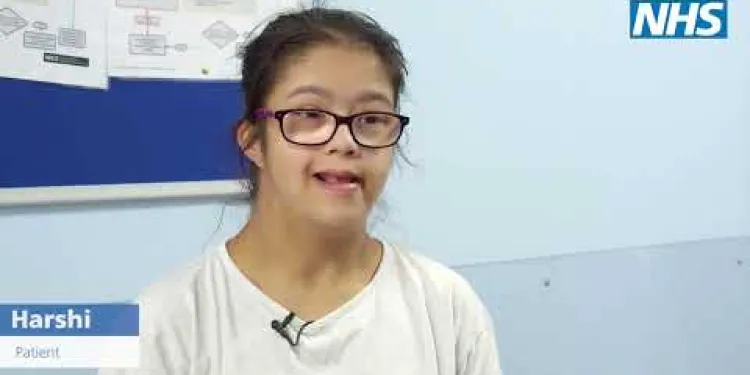
Harshi’s learning disability annual health check and health action plan
Relevance: 30%
-

Do gig workers have intellectual property rights over their work?
Relevance: 30%
-

NHS-led Provider Collaboratives: improving mental health, learning disability and autism services
Relevance: 29%
-
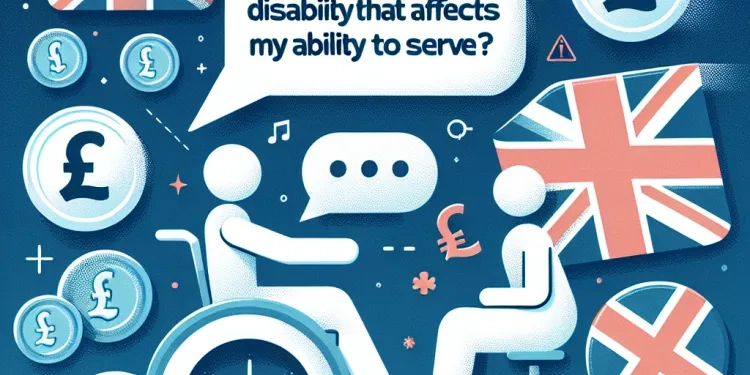
What if I have a disability that affects my ability to serve?
Relevance: 22%
-

How can I disable my neighbour's security camera?
Relevance: 22%
-

What are some common types of SEND?
Relevance: 19%
-

Are there any discounts for multiple property purchases?
Relevance: 19%
-

Why do some vaccines require multiple doses?
Relevance: 18%
-

Are there benefits to having multiple bank accounts at different banks?
Relevance: 17%
-

Are there benefits to having multiple bank accounts at different banks?
Relevance: 17%
-

Who will be most affected by the proposed cuts to housing benefits?
Relevance: 16%
-

Can I have multiple ISAs?
Relevance: 16%
-

Highest Income Multiple Mortgage Lenders Revealed - Good and Bad Points
Relevance: 16%
-

Who is eligible for Household & Cost-of-Living Support grants?
Relevance: 15%
-

Is there any assistance for those who cannot work up to the new state pension age?
Relevance: 14%
-

Who can live in a care home?
Relevance: 14%
-

What is Personal Independence Payment (PIP)?
Relevance: 14%
-

What is Personal Independence Payment (PIP)?
Relevance: 14%
-

Proposed Welfare Cuts and Their Impact on Vulnerable Populations
Relevance: 14%
-
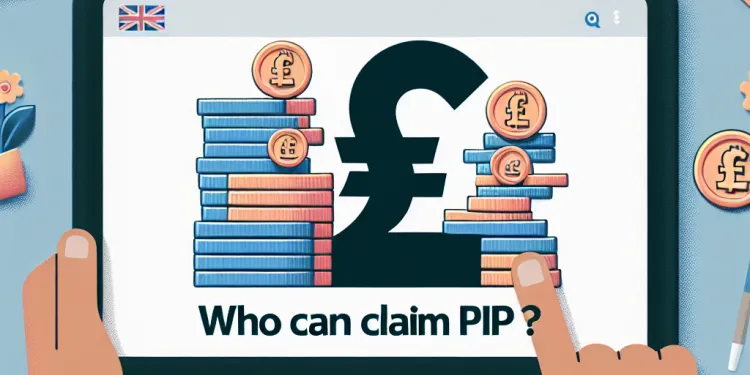
Who can claim PIP?
Relevance: 14%
-

Who is eligible for Household & Cost-of-Living Support grants?
Relevance: 14%
-

What is Social Security and how can seniors benefit from it?
Relevance: 14%
-

What are some common misconceptions about SEND?
Relevance: 14%
-
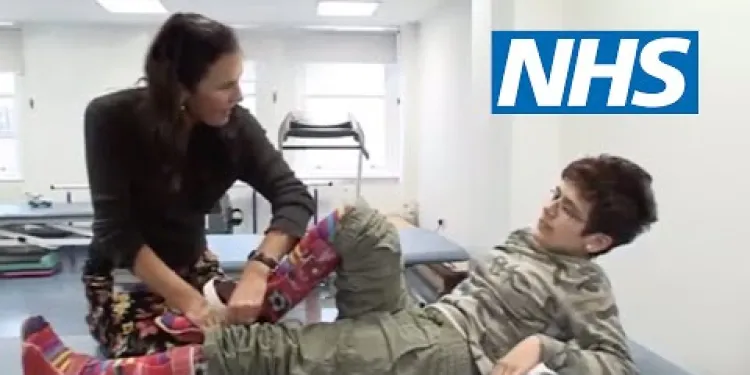
Cerebral palsy | NHS
Relevance: 14%
-

FASD Foetal alcohol
Relevance: 13%
-

Who is eligible for the Sure Start Grant?
Relevance: 13%
-

What does SEND stand for?
Relevance: 13%
-

Having a child with Edwards' syndrome (trisomy 18) | NHS
Relevance: 13%
Profound Intellectual and Multiple Disabilities (PIMD) | NHS
Understanding Profound Intellectual and Multiple Disabilities
Profound Intellectual and Multiple Disabilities (PIMD) describe individuals with severe cognitive impairments and additional physical or sensory disabilities. People with PIMD often require extensive support with daily activities and healthcare needs. In the United Kingdom, the NHS provides comprehensive care tailored to the unique needs of individuals with PIMD and their families.
Characteristics of PIMD
Individuals with PIMD typically have an IQ below 25, and they may experience significant difficulties in communication, mobility, and self-care. They often exhibit a high dependence on caregivers and may have additional conditions such as epilepsy, sensory impairments, or complex healthcare needs. This combination of challenges means that each person with PIMD requires a highly personalized care approach.
Healthcare and Support Services
The NHS in the UK offers a wide range of services for individuals with PIMD, including specialized medical care, physical and occupational therapy, speech and language therapy, and psychological support. Multidisciplinary teams work collaboratively to create comprehensive care plans that address the medical, educational, and social needs of individuals with PIMD. These teams may include doctors, nurses, therapists, and social workers.
Educational and Social Support
Education for individuals with PIMD focuses on developing communication skills, sensory awareness, and social interaction. Special education schools and programs are designed to provide a stimulating environment that caters to the unique learning needs of these individuals. Furthermore, community-based programs offer opportunities for social engagement and skill development, contributing to an improved quality of life.
Support for Families and Caregivers
Caring for someone with PIMD can be demanding, both physically and emotionally. The NHS and various UK-based organizations provide support services for families and caregivers, including respite care, counseling, and training programs. These resources are vital for maintaining the well-being of both the caregivers and the individuals with PIMD.
Advancements and Research
Ongoing research and advancements in medical and therapeutic interventions continue to improve the quality of life for individuals with PIMD. Innovations in assistive technology, communication aids, and personalized healthcare plans are making significant strides in enhancing the abilities and independence of those with profound disabilities.
For more information on services and support for PIMD, visit the NHS website or consult your local healthcare provider.
Understanding Profound Intellectual and Multiple Disabilities (PIMD)
Profound Intellectual and Multiple Disabilities, or PIMD, means someone has serious learning and physical challenges. People with PIMD need a lot of help every day. The NHS in the UK helps care for them and their families.
What PIMD Means
People with PIMD often find it hard to learn and talk. They may need help moving and taking care of themselves. They rely a lot on other people. They might also have other health issues like epilepsy or trouble seeing and hearing. This means they need special care that fits them personally.
Getting Help and Care
The NHS in the UK offers many services to help people with PIMD. This includes special doctors, therapists for moving and talking, and support for feelings and behavior. Teams of experts work together to make a plan for each person's health, learning, and social needs. These teams can include doctors, nurses, therapists, and social workers.
Learning and Making Friends
Education for people with PIMD helps them learn to talk and interact with others. Special schools create fun and safe places for learning. Activities in the community help them make friends and learn new skills, making their life better.
Help for Families and Helpers
Taking care of someone with PIMD can be hard. The NHS and other groups in the UK help families and caregivers with breaks, advice, and training. These services help both the caregivers and the people with PIMD feel better.
New Ideas and Research
Scientists and doctors are always looking for better ways to help people with PIMD. New tools and treatments are helping them live more independently and improve their skills.
To learn more about how the NHS can help, visit the NHS website or talk to your doctor or local health service.
Frequently Asked Questions
What are profound intellectual and multiple disabilities (PIMD)?
PIMD refers to individuals who have severe cognitive impairments combined with additional disabilities such as physical, sensory, or medical issues, leading to significant challenges in daily living.
How are people with PIMD typically supported?
Support for individuals with PIMD often includes a multidisciplinary approach involving healthcare, education, social services, and specialized therapy to address their complex needs.
What kinds of education are available for children with PIMD?
Children with PIMD typically attend special schools or units within mainstream schools that provide tailored education plans specifically designed to meet their needs.
What is the role of healthcare professionals in managing PIMD?
Healthcare professionals, including doctors, nurses, therapists, and dietitians, play a crucial role in managing the medical and therapeutic needs of individuals with PIMD.
How can communication be facilitated for individuals with PIMD?
Communication for individuals with PIMD can be facilitated using a variety of methods including non-verbal cues, sign language, communication aids, and consistent routines.
What are some common health issues associated with PIMD?
Common health issues can include epilepsy, respiratory problems, feeding difficulties, and mobility challenges, which require comprehensive medical management.
Why is early intervention important for children with PIMD?
Early intervention is vital as it can help to maximize a child’s development and quality of life by addressing issues as soon as possible and providing support for families.
What support is available for families of individuals with PIMD?
Support for families can include respite care, financial assistance, counseling, and access to community resources such as support groups and advocacy organizations.
How are care plans developed for individuals with PIMD?
Care plans are developed through collaborative efforts involving the individual, their family, and a team of professionals to create tailored strategies that address both immediate and long-term needs.
What are some strategies for managing challenging behaviors in individuals with PIMD?
Strategies may include positive behavior support, environmental adjustments, consistent routines, and professional interventions from psychologists or behavioral therapists.
How do sensory impairments affect individuals with PIMD?
Sensory impairments can significantly impact individuals with PIMD by affecting their ability to interact with their environment and communicate, requiring specialized interventions to support their sensory needs.
What is the importance of physiotherapy for people with PIMD?
Physiotherapy is important as it helps to manage mobility issues, prevent contractures, improve physical functioning, and enhance overall quality of life for individuals with PIMD.
Can individuals with PIMD live independently?
Most individuals with PIMD require lifelong care and support and may live in family homes, residential care settings, or supported living arrangements depending on their level of need and independence.
What role do assistive technologies play in the lives of individuals with PIMD?
Assistive technologies can greatly enhance the quality of life for individuals with PIMD by aiding in communication, mobility, daily activities, and providing sensory stimulation.
Where can carers and families find more information and resources about PIMD?
Carers and families can access information and resources from healthcare providers, local authorities, national charities, and specialized organizations dedicated to supporting individuals with PIMD.
What are profound intellectual and multiple disabilities (PIMD)?
PIMD means very big learning and thinking difficulties. A person with PIMD needs a lot of help with most things.
People with PIMD might also need help moving or using their body.
They might use things like pictures or simple words to talk.
To help understand more, you can:
- Use simple words and short sentences.
- Use pictures or photos to help explain.
- Use tools that can read text out loud.
PIMD means people who have big problems thinking and learning. They also have other problems like trouble moving, seeing, or health issues. These make it hard for them to do everyday things.
How Do We Help People with PIMD?
People with PIMD need extra help. Here are some ways we can support them:
- Personal Helpers: Kind people who help with daily tasks.
- Special Schools: Places where they can learn new things.
- Therapy: Activities like music or playing to help them feel good.
- Communication Tools: Like pictures or devices to help talk and share ideas.
We should always be kind and patient to help them live happily.
People with PIMD need help from different types of experts. These experts work together as a team. The team includes doctors, teachers, social workers, and therapists. They help with health, learning, and other special needs.
What schools can children with PIMD go to?
Children with PIMD (Profound, Multiple Learning Difficulties) need special schools. These schools help them learn in ways that suit them. Here are some ways they can learn:
- Special Schools: These schools have teachers who know how to help children with PIMD. They use special tools and activities.
- One-to-One Support: Some children get a helper who works with them alone. This can make learning easier for them.
- Therapies: Children might also have speech or physical therapy. This helps them with talking and moving.
- Sensory Activities: These activities help children learn through touch, sound, and sight.
Tools like picture cards or apps can also help children with PIMD understand and communicate better.
Children with very complex needs usually go to special schools. Sometimes they go to special classes in regular schools. These schools and classes help children learn in ways that are best for them.
What do healthcare workers do to help people with PIMD?
Healthcare workers have special jobs to help people with PIMD.
PIMD means someone has a lot of support needs.
These workers make sure people are healthy and happy.
They check on people, give medicine, and help with exercises.
It is important to communicate well and understand each person.
Using pictures or gestures can help in talking with people who have PIMD.
Doctors, nurses, therapists, and dietitians are very important. They help take care of people with complex disabilities.
How can we help people with PIMD talk and understand better?
People with PIMD can talk to others in different ways. They can use body movements, signs with their hands, special tools for talking, and doing things the same way every day.
What health problems do people with PIMD often have?
Here are some health problems that people with PIMD (profound intellectual and multiple disabilities) might face:
- Breathing troubles
- Trouble eating and swallowing
- Heart problems
- Muscle stiffness or weakness
- Seizures
- Digestive problems
It's important to have regular health check-ups.
If you want help to learn more, try talking to a doctor or using picture cards to understand better. You can also ask someone to explain things to you.
Some health problems people may have are epilepsy (which causes seizures), breathing trouble, trouble eating, and moving around (walking or using a wheelchair). These need special help and care from doctors.
Why is help early important for children with PIMD?
Giving help early to children with PIMD is very important. It can help them learn and grow better.
PIMD means Profound and Multiple Learning Disabilities.
These children may find things harder to do and learn.
Starting help early can make a big difference in their lives.
Here are some things that can help:
- Therapies: Talking, moving, and playing therapies can help.
- Support at home: Families can learn ways to help their child.
- Special tools: Use pictures and simple tools to help them understand.
Early help can give children a good start.
It can help them be happy and do well.
It is very important to help children early. This can help them grow and do well. Getting help early can also support families.
What help can families get if someone in their family has PIMD?
There are different ways to help families. Families can get help from:
- Respite care: This means someone else looks after your family member for a short time so you can rest.
- Financial help: This is when you get money to help pay for things you need.
- Counseling: This is talking to someone who listens and helps with your feelings.
- Community resources: These are groups and places that help families. They can include support groups where you can meet other families like yours. There are also advocacy groups that can help you speak up for what you need.
These tools can make things easier for families. They provide support and help when you need it.
How do we make care plans for people with PIMD?
Creating a care plan for someone with PIMD (Profound and Multiple Learning Disabilities) means thinking about what they need to be happy and safe. It is a team effort.
Here is how we do it:
- Talk to the Family: We work closely with the person’s family. They know the person the best and can tell us what makes them happy or upset.
- Use Specialists: Doctors and therapists help us understand any medical or special care the person needs.
- Observe: We watch the person to see what they like and dislike. This helps us make the right choices.
- Create a Plan: We write down everything we learn in a care plan. This includes food, activities, and things that keep them healthy.
- Review Often: We check and update the plan to make sure it still works. People change over time, so the plan might need to change too.
We might use pictures or simple words in the care plan to make it easy to understand.
Care plans are made with people working together. The person who needs help, their family, and a team of helpers plan how to best meet their needs now and in the future.
How can we help people with PIMD when they behave in difficult ways?
Here are some ways to help when someone with PIMD (profound intellectual and multiple disabilities) behaves in a difficult way:
- Stay calm and talk in a gentle voice.
- Use pictures or gestures to show what you mean.
- Give them time to understand and respond.
- Find out what makes them upset and try to change it.
- Praise them when they behave nicely.
Using these tools can help:
- Picture cards: To help explain things.
- Routine charts: To show what happens next.
- Calm spaces: A quiet place to relax when upset.
Here are some ways to help:
- Give rewards for good behavior.
- Change the space around to make it better.
- Do things in the same order every day.
- Ask a doctor or therapist to help.
Some tools that might help are:
- Picture cards to show what to do next.
- Timers to say when to start or stop something.
- Charts to show goals and rewards.
How do problems with senses affect people with PIMD?
People with PIMD have trouble with their senses like seeing, hearing, or feeling. This can make things hard for them. Here is how:
- Seeing: They might not see well or at all. Big and bright things help them see better.
- Hearing: They might not hear well or at all. Sounds need to be clear and not too loud.
- Feeling: They might not feel things like touch or pain easily. Soft touches and comfortable toys can help.
Helping tools can make life easier:
- Use pictures and bright colors for seeing.
- Use music and clear sounds for hearing.
- Use soft toys and gentle touches for feeling.
These tools and ways help make sure they can enjoy and understand the world around them.
Sensory problems can make it hard for people with PIMD to talk and play with others. These people need special help to manage these problems.
Why is physiotherapy important for people with PIMD?
Physiotherapy helps people move better.
PIMD means having more than one big disability, like trouble moving and learning.
Physiotherapy can make muscles stronger and help with balance.
This can help people with PIMD do more things on their own.
Sometimes, physiotherapists use special tools or exercises.
They can work with families to find the best way to help.
Physiotherapy is important. It helps people move better. It stops muscles from getting too tight. It makes people feel stronger. It helps people with PIMD feel happier and healthier.
Can people with PIMD live on their own?
PIMD means Profound Intellectual and Multiple Disabilities. These are big challenges, so people with PIMD need a lot of help.
Usually, people with PIMD can't live on their own. They need help from family or special helpers. They might live in special homes.
If you know someone with PIMD, here are some ways to help:
- Talk to a doctor for advice.
- Use simple tools like pictures or sounds to communicate.
- Find support groups for extra help.
People with PIMD can be happy and safe with the right help.
People with PIMD often need help for their whole life. They may live with their families, in special care homes, or in places where they get extra support. It depends on how much help they need and how independent they are.
How do helpful tools help people with PIMD?
Helpful tools can make life easier for people with PIMD (Profound and Multiple Learning Disabilities). These tools can help with talking, moving, and learning new things.
Some helpful tools are special computers, communication boards, or other devices that help people say what they feel and need. They can also help with playing games and taking part in different activities.
Tools like wheelchairs or special seats help people move around more easily. Adapted toys or learning apps can help make learning fun and easier.
Supportive tools can help people with PIMD enjoy life more, learn new skills, and communicate better with their friends and family.
If someone needs help with these tools, they can ask caregivers, teachers, or therapists for guidance.
Helpful tools can make life better for people with PIMD. They help with talking, moving around, doing everyday things, and enjoying different feelings.
Where can carers and families find more information about PIMD?
Carers and families can find more information about PIMD from books, websites, and support groups.
Here are some ways to learn more:
- Look for books in the library or online about PIMD.
- Visit websites that help carers and families of people with PIMD.
- Join support groups where carers and families can talk and share tips.
Using these tools and talking to others can help carers and families know more and feel supported.
Carers and families can get information and help from doctors, town or city councils, big charities, and special groups that help people with PIMD.
Useful Links
This website offers general information and is not a substitute for professional advice.
Always seek guidance from qualified professionals.
If you have any medical concerns or need urgent help, contact a healthcare professional or emergency services immediately.
Some of this content was generated with AI assistance. We’ve done our best to keep it accurate, helpful, and human-friendly.
- Ergsy carfully checks the information in the videos we provide here.
- Videos shown by Youtube after a video has completed, have NOT been reviewed by ERGSY.
- To view, click the arrow in centre of video.
- Most of the videos you find here will have subtitles and/or closed captions available.
- You may need to turn these on, and choose your preferred language.
- Go to the video you'd like to watch.
- If closed captions (CC) are available, settings will be visible on the bottom right of the video player.
- To turn on Captions, click settings .
- To turn off Captions, click settings again.
More Items From Ergsy search
-

Profound intellectual and multiple disabilities | NHS
Relevance: 100%
-

What is a learning disability?
Relevance: 52%
-

Are there grants specifically for individuals with disabilities?
Relevance: 45%
-

Helping someone with multiple diabilities
Relevance: 43%
-

Flu vaccinations for people with a learning disability
Relevance: 41%
-

Can children with disabilities access school meals?
Relevance: 41%
-

Debate Intensifies Over Welfare Reforms Impacting Disabled Citizens
Relevance: 39%
-

The NHS Long Term Plan for learning disability and autism
Relevance: 39%
-

Accessing cervical screening with the right support for people with a learning disability
Relevance: 36%
-

Use of reasonable adjustments to reduce health inequalities for people with a learning disability
Relevance: 35%
-

Transforming Care for people with Learning Disabilities and/ or Autism: Peter's Story
Relevance: 34%
-

What support is available for families of individuals with PIMD?
Relevance: 30%
-

Harshi’s learning disability annual health check and health action plan
Relevance: 30%
-

Do gig workers have intellectual property rights over their work?
Relevance: 30%
-

NHS-led Provider Collaboratives: improving mental health, learning disability and autism services
Relevance: 29%
-

What if I have a disability that affects my ability to serve?
Relevance: 22%
-

How can I disable my neighbour's security camera?
Relevance: 22%
-

What are some common types of SEND?
Relevance: 19%
-

Are there any discounts for multiple property purchases?
Relevance: 19%
-

Why do some vaccines require multiple doses?
Relevance: 18%
-

Are there benefits to having multiple bank accounts at different banks?
Relevance: 17%
-

Are there benefits to having multiple bank accounts at different banks?
Relevance: 17%
-

Who will be most affected by the proposed cuts to housing benefits?
Relevance: 16%
-

Can I have multiple ISAs?
Relevance: 16%
-

Highest Income Multiple Mortgage Lenders Revealed - Good and Bad Points
Relevance: 16%
-

Who is eligible for Household & Cost-of-Living Support grants?
Relevance: 15%
-

Is there any assistance for those who cannot work up to the new state pension age?
Relevance: 14%
-

Who can live in a care home?
Relevance: 14%
-

What is Personal Independence Payment (PIP)?
Relevance: 14%
-

What is Personal Independence Payment (PIP)?
Relevance: 14%
-

Proposed Welfare Cuts and Their Impact on Vulnerable Populations
Relevance: 14%
-

Who can claim PIP?
Relevance: 14%
-

Who is eligible for Household & Cost-of-Living Support grants?
Relevance: 14%
-

What is Social Security and how can seniors benefit from it?
Relevance: 14%
-

What are some common misconceptions about SEND?
Relevance: 14%
-

Cerebral palsy | NHS
Relevance: 14%
-

FASD Foetal alcohol
Relevance: 13%
-

Who is eligible for the Sure Start Grant?
Relevance: 13%
-

What does SEND stand for?
Relevance: 13%
-

Having a child with Edwards' syndrome (trisomy 18) | NHS
Relevance: 13%


